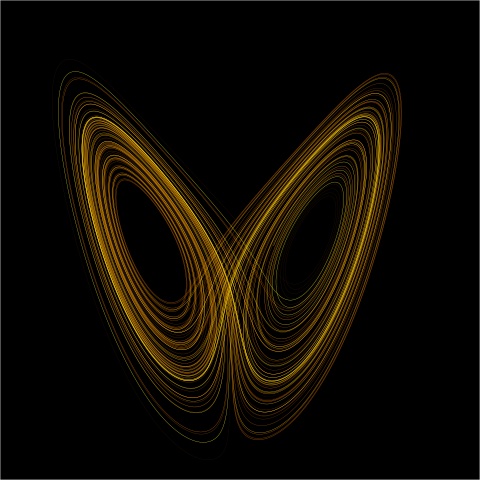What is Chaos Theory?
Chaos theory is a branch of mathematics that deals with the study of systems that exhibit seemingly random behavior. It is a relatively new field, having emerged in the late 20th century, and it has had a significant impact on a wide range of fields, including physics, economics, and biology.
At its most basic level, chaos theory is concerned with understanding how small changes in initial conditions can lead to large differences in the outcomes of a system. This phenomenon is known as the butterfly effect, which suggests that the flapping of a butterfly’s wings in one part of the world could have a cascading effect on events in another part of the world.
Chaos theory is based on the idea that even systems that seem predictable and orderly can exhibit unexpected and seemingly random behavior. This behavior is often referred to as “chaos,” and it is characterized by a high degree of sensitivity to initial conditions. In other words, small changes in the initial conditions of a system can lead to large and unexpected differences in the system’s behavior over time.
Applications of Chaos Theory
Chaos theory has a wide range of applications in a variety of fields. In physics, it has been used to study the behavior of fluids, the formation of galaxies, and the dynamics of climate. In economics, it has been used to study market fluctuations and to develop financial models. In biology, it has been used to study the behavior of populations and the spread of diseases.
One of the key applications of chaos theory is in the field of prediction. By understanding the underlying dynamics of a system, it is possible to make more accurate predictions about its future behavior. This can be especially useful in fields such as weather forecasting, where small differences in initial conditions can have a significant impact on the outcome.
Challenges
Despite its many applications, chaos theory has also faced some challenges. One of the main challenges is that it is difficult to predict the behavior of a system when it is in a state of chaos. This is because the sensitivity to initial conditions makes it difficult to accurately predict the outcome of a system without knowing all of the details of its initial conditions.
Another challenge is that it can be difficult to determine when a system is in a state of chaos. This is because the transition from order to chaos can be gradual, and it is not always easy to identify when a system has crossed the threshold into chaos.
Chaos theory is a fascinating and complex field that has had a significant impact on a wide range of fields. It offers a new way of thinking about the behavior of systems and has provided valuable insights into the underlying dynamics of the world around us. While it is not without its challenges, chaos theory has the potential to continue to shape our understanding of the world for years to come.

